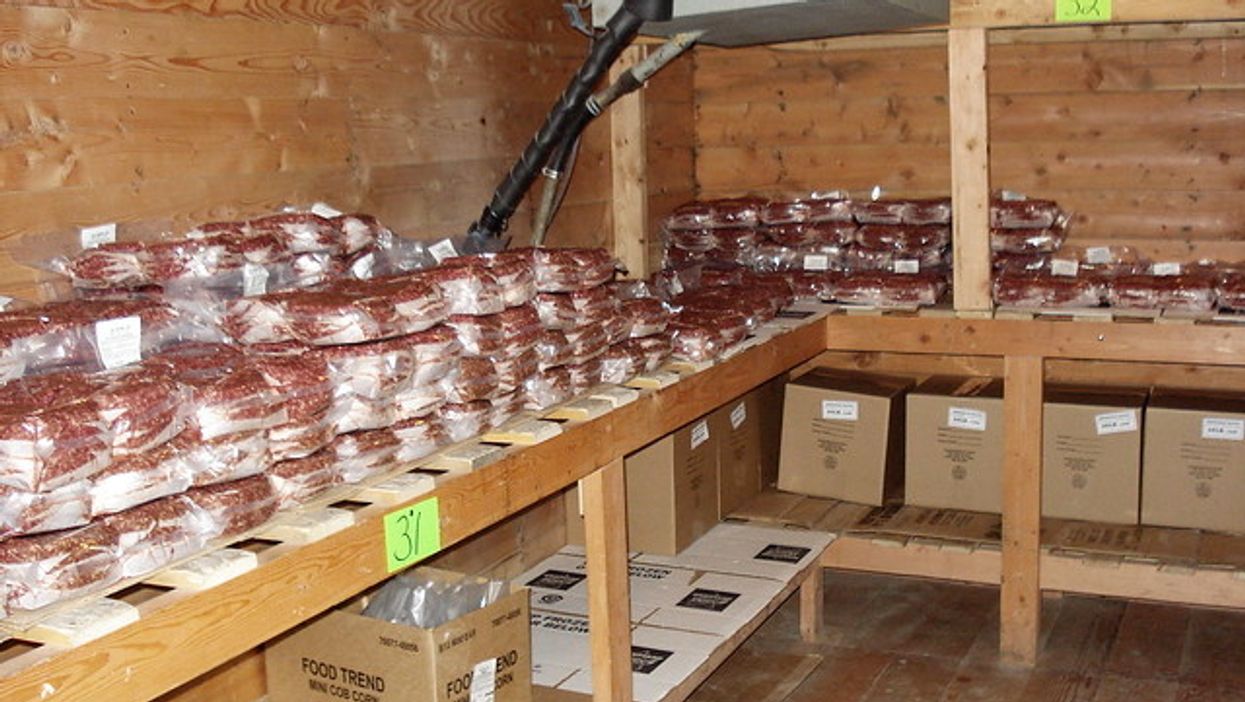
Reprinted with permission from DCReport
Trump administration officials may have used misleading data to analyze safety so that meatpacking plants could skirt a safety rule regulating their processes. The rule regulates how fast pigs can be slaughtered.
The USDA Office of Inspector General recently released a report expressing concern about faulty data, as COVID-19 cases soar in the meatpacking industry.
At least 102 meatpackers have died, according to the Food & Environment Reporting Network. More than 30,000 meatpackers tested positive for COVID-19, including 170 workers at Quality Pork Processors Inc. in Austin, Minn. And 1,031 positive cases were counted at Tyson Foods pork plant in Waterloo, Iowa, where at least five workers have died.
"The inspector general's report provides an additional reason why the rule eliminating the maximum line speeds cannot stand," said Adam Pulver. He is attorney for Public Citizen which is representing unions in a lawsuit over the rule.
Team Trump's lack of concern about workers who process pigs into the bacon and pork chops is akin to Trump's no-testing policy for COVID-19.
Trump's Food Safety and Inspection Service is the part of the Agriculture Department that is supposed to serve as the public health arm to ensure a safe supply of commercial meat, poultry and eggs. It called the audit "misguided."
The agency said a 2011 executive order from then President Barack Obama about reviewing regulations and guidelines for information quality didn't apply to "preliminary analysis" that it said was not used as a "foundation" to write the new rule.
'Pink Slime' Expert in Charge
Mindy Brashears, the star witness for a South Dakota beef processor in its "pink slime" defamation lawsuit against ABC News, is the Senate-confirmed head of the Food Safety and Inspection Service.
Quality Pork Producers' Austin, Minn., plant, which supplies meat to a nearby Hormel Foods plant, was one of five hog slaughterhouses that participated in pilot study for the USDA about how fast workers could process slaughtered hogs. The previous limit for slaughtering lines for pork plants that could implement the new system was 1,106 hogs an hour.
The agency claimed that Quality Pork Producers and the four other slaughterhouses with higher line speeds had lower average numbers of reported injuries for three federal rates of injury and illness than traditional plants operating at slower speeds.
No Data for 9 Out 10 Years
But the audit found that the data used in the analysis were incomplete. Injury and illness rates were available for only one year out of a decade in three of the 24 traditional plants used in the analysis. Only one of the 29 plants—the plants operating at faster and slower speeds—had data for the entire decade. The agency also didn't verify if the data were accurate.
Studies funded by the National Institute for Occupational Safety and Health identify line speed as a leading cause of worker cuts.
Organizations asked for the methodology and data behind the analysis when the rule was proposed, but the Trump USDA wouldn't produce any while the proposal was being discussed. In the final rule, published Oct. 1, the agency said it lacked authority and expertise to regulate worker safety. The rule took effect on Dec. 2.
No Valid Conclusion
Two experts from Texas State University also analyzed the materials used in the worker safety analysis and concluded it was "impossible for FSIS to draw any statistically valid conclusion about worker injury rate differences."
The United Food and Commercial Workers Union, three of its locals and the AFL-CIO sued tbe USDA over the rule, saying eliminating the speed limit for slaughtering hogs would cause more worker injuries. Meatpacking workers have the highest rate of occupational illness of any private industry in our nation, and that was before the coronavirus.
Judge Joan Ericksen, who was nominated by then President George W. Bush, ruled in April that the part of the lawsuit about line speed could go forward but dismissed two other claims. FSIS now is asking the judge to put the case on hold so the agency can address concerns about worker safety.
- Trump Republicans Care Less About Workers Than Hogs - National ... ›
- Trump Administration Rigs Market For Big Beef Packers - National ... ›
- Wisconsin Judge Says Endangered Meatpacking Workers Aren't ... ›
- Covid-19 Infection Explodes Among Meatpackers Ordered To ... ›
- Congress Launches Probe Of Meatpacking Worker Fatalities In Pandemic - National Memo ›








